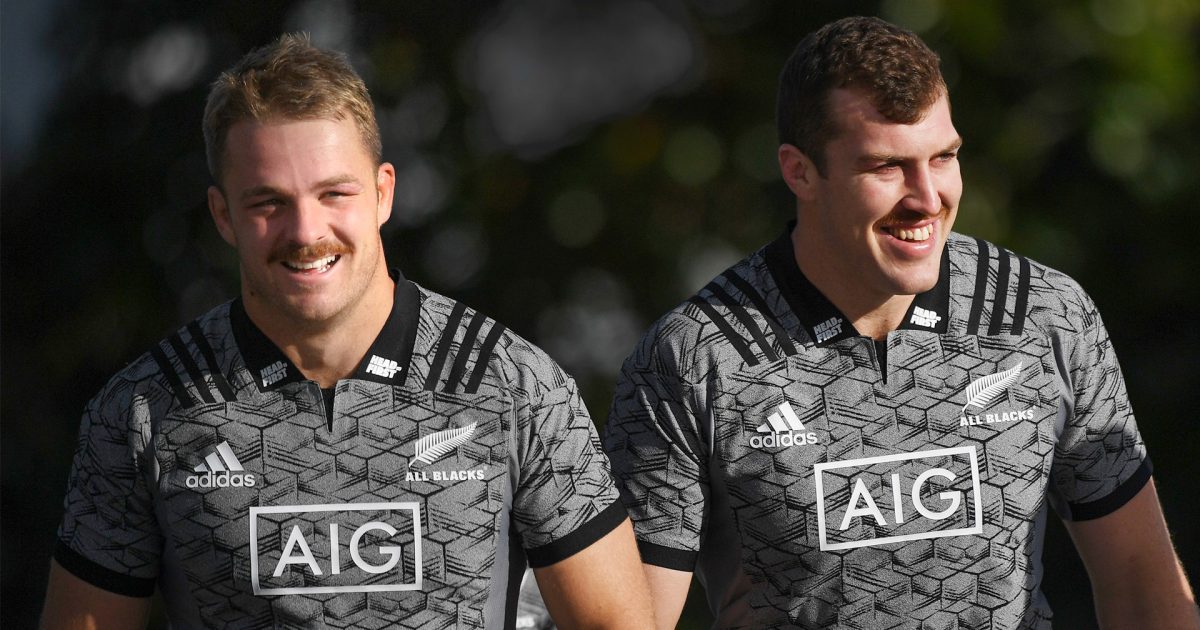How the Chiefs plan to reintegrate their All Blacks

The re-introduction and management of international players throughout Super Rugby is always a hot topic of discussion and the extended test season in 2021 has made for an even more complex beast this season.
Last year, the bulk of the All Blacks didn’t arrive back in New Zealand following their epic tour to Australia, the United States and Europe until late November and were then required to spend a week in managed isolation before finally being able to see their family and friends for the first time since early September.
Unsurprisingly, those All Blacks have now been enjoying an extended summer of downtime – but the shadow of the inaugural Super Rugby Pacific season looms large and with the competition kicking off on February 18, the various players scattered amongst the five NZ franchises will soon have to throw themselves back into their work if they want to maintain their high standards.
11 Chiefs players were present on the All Blacks’ end-of-year tour: Samisoni Taukei’aho, Angus Ta’avao, Brodie Retallick, Tupou Vaa’i, Josh Lord, Sam Cane, Luke Jacobson, Brad Weber, Quinn Tupaea, Anton Lienert-Brown and Damian McKenzie.
While McKenzie has taken his talents to Japan, at least for the 2022 season, the remaining 10 players will form a key spine for the Chiefs this year and head coach Clayton McMillan will be keen to get all of them firing in the early stages of the season when the New Zealand derbies are set to take place.
View this post on Instagram
Given the vastly differing workloads those players managed last year (Retallick featured in 11 tests, Josh Lord in just two), McMillan has taken a bespoke approach to reintegrating his All Blacks ahead of the coming campaign – one that seemed to work well in 2021.
“With the All Black integration, we’ve just had a policy – I did this last year – [where we] sit down with them individually and have an individual approach to them all,” McMillan revealed on Thursday. “Some have needed a little bit more a longer break and just to get away from rugby and others were quite eager to get back in here and you have to sort of push them to stay away.
“So it’s just those individual conversations and I guess they’re all available in week one against the Highlanders. I’ve basically just put the accountability on them [and said], ‘If you want to be available for game one – and our expectation is that you’re somewhere near your best – you’ll make decisions around when you need to come back in and what you need to do while you’re away to give yourself the best opportunity of doing that’.”
That means while your Retallicks and Lienert-Browns might not shoulder as heavy a workload early on as your Lords and Jacobsons, there’s not going to be any massive delays to anyone kicking off their Super Rugby campaign.
With many of the All Blacks currently still not involved in pre-season training, it has opened up the door for a number of temporary replacements to fill the gaps in the squad. This could prove invaluable later in the season when injuries and Covid inevitably strike.
“This year more than any other year, we’re going to definitely be needing more than our contracted squad to sort of get through the year,” said McMillan. “In that regard, [having replacement players in for the pre-season] is awesome.
“It also rewards players that had a really good NPC but maybe because contracting had been completed, didn’t pick up full contracts. So it’s good to see them get a better handle on their ability and it gives us all confidence that when the time comes for them to step into a void that they’ll do that and not only just do it, but thrive.”
At the end of the day, McMillan is confident that the All Blacks will come into the season ready and rearing for action – but their ongoing absence at present will prove beneficial for the club in the long run.
“The All Blacks are quality players and you know that it doesn’t take them long to sort of come back in and their absence it opens the door for other people to get exposure.”












































































Sure..sure All depends how they fare early on. If the youngsters dont deliver, be certain the heavy horses will return pronto.